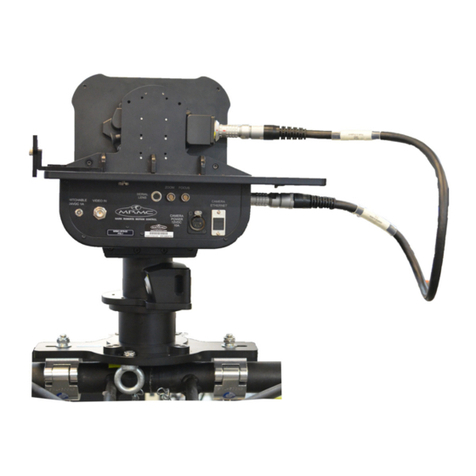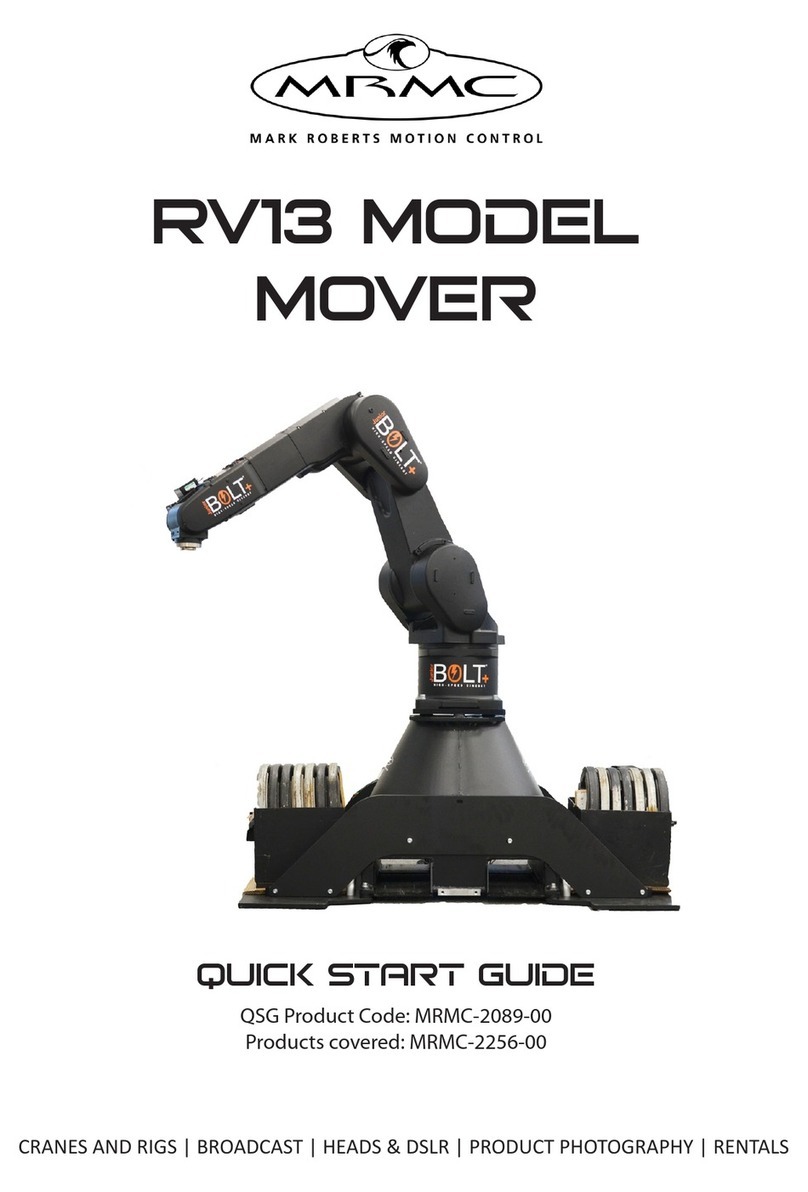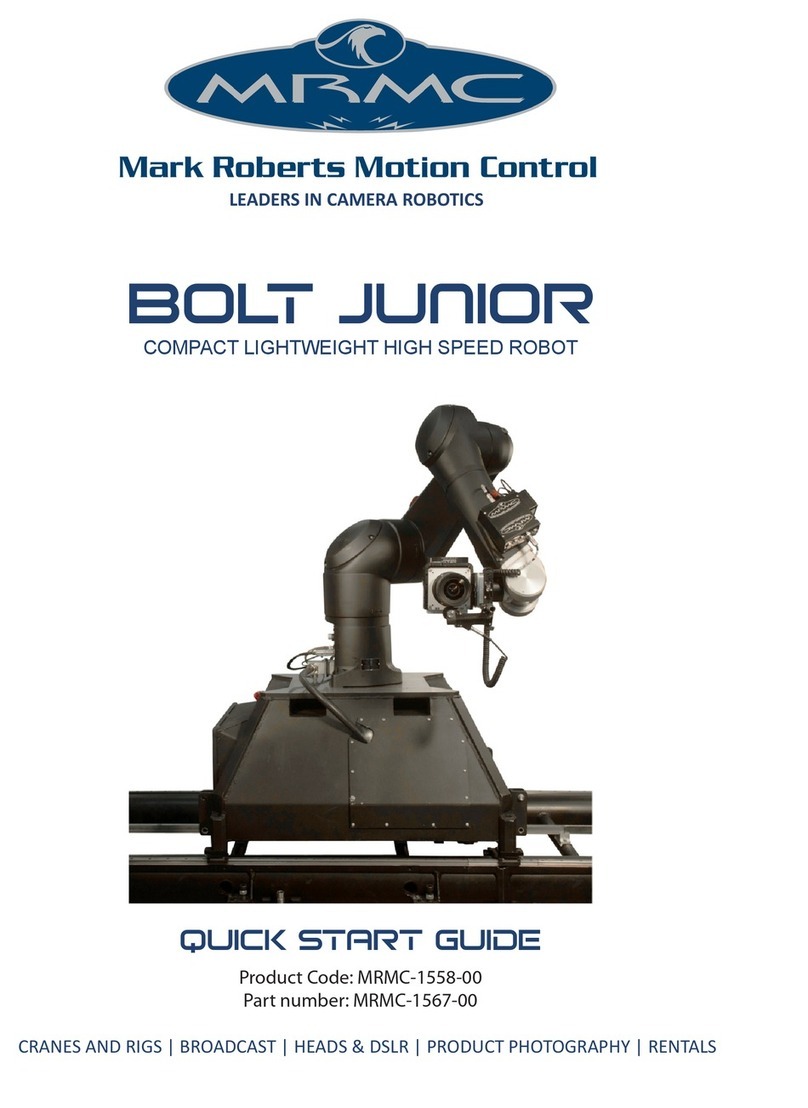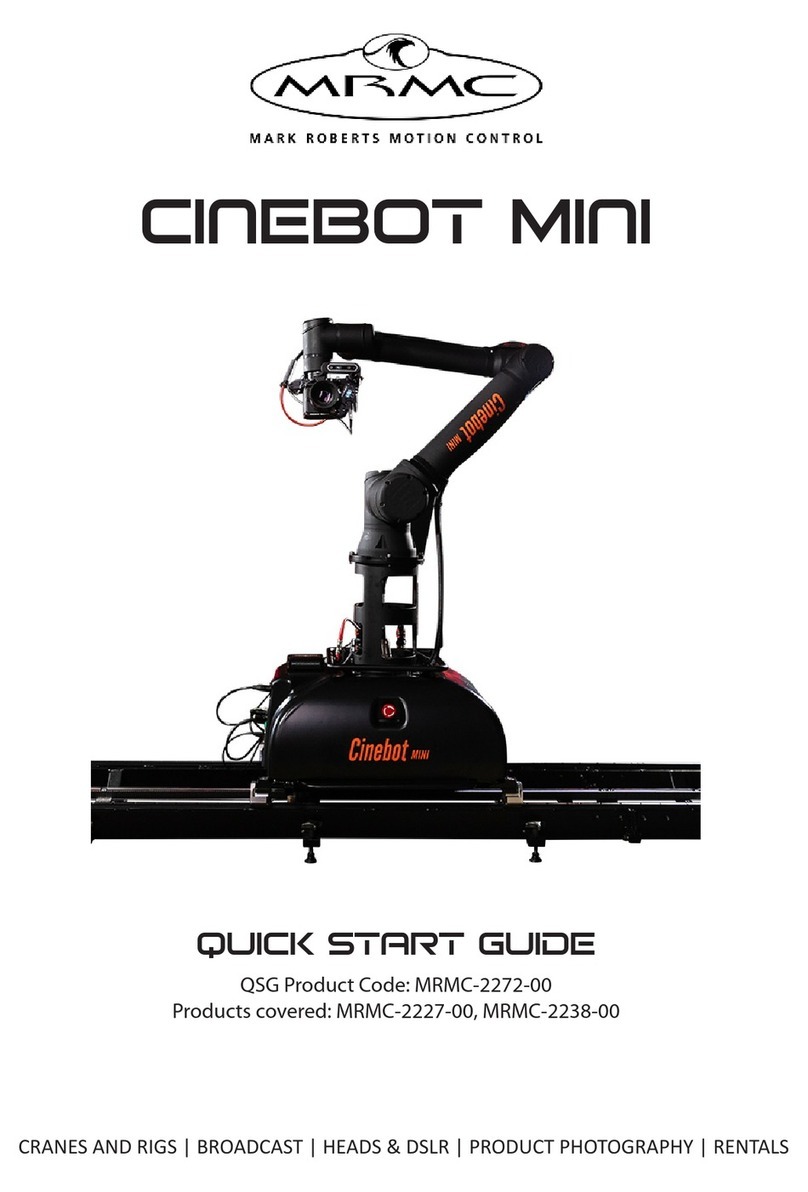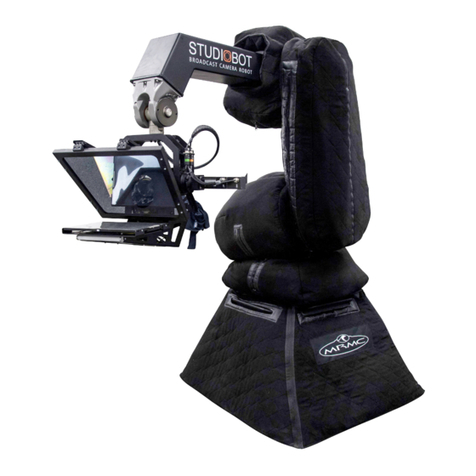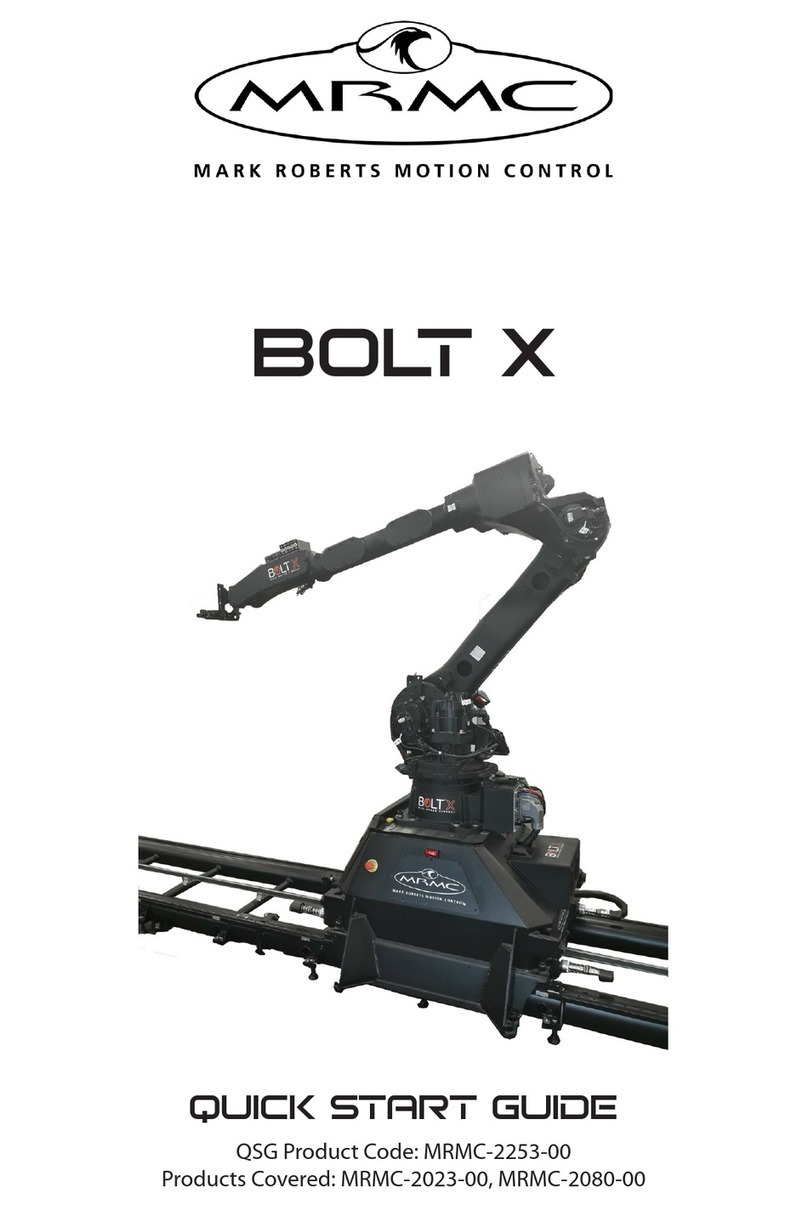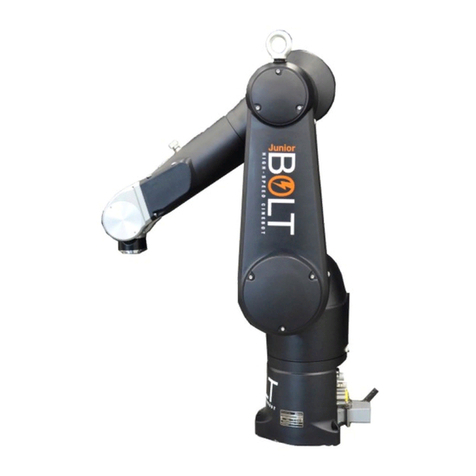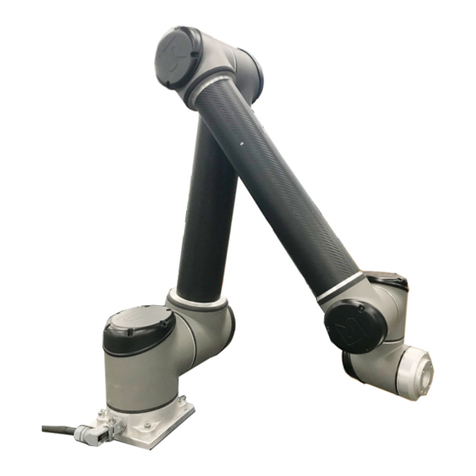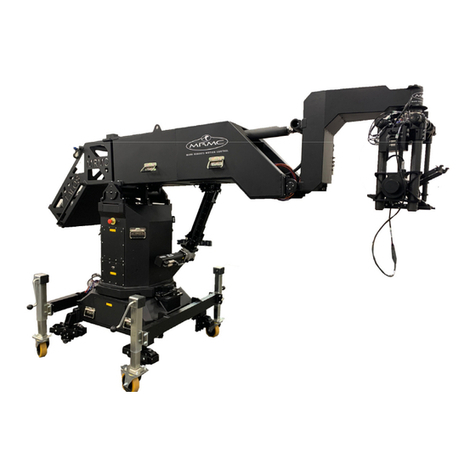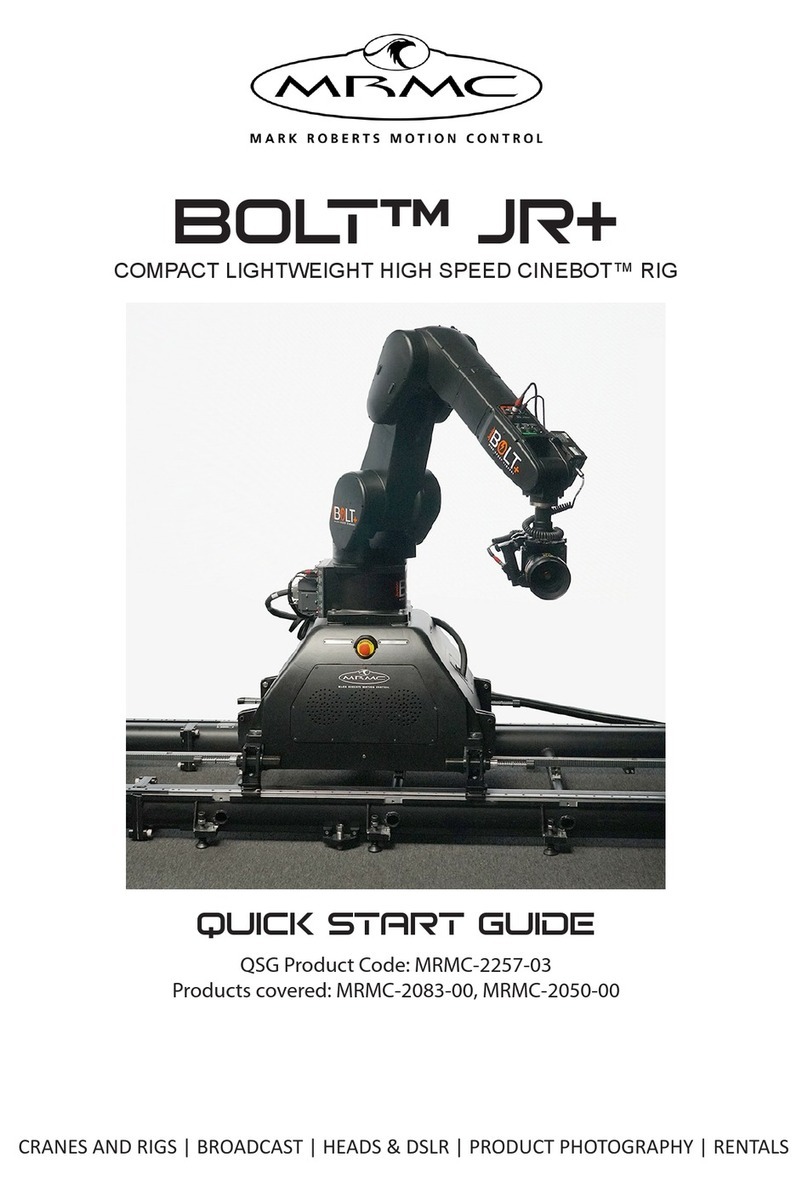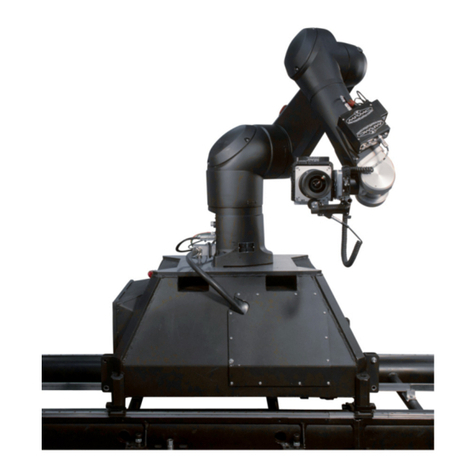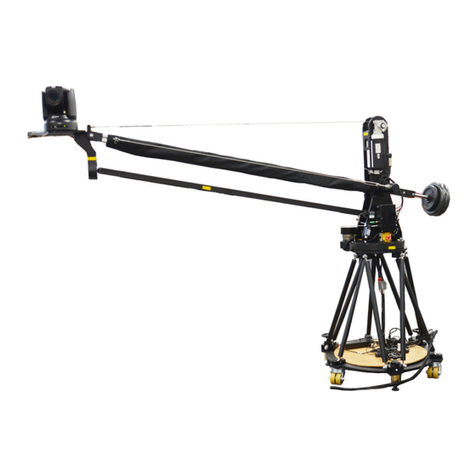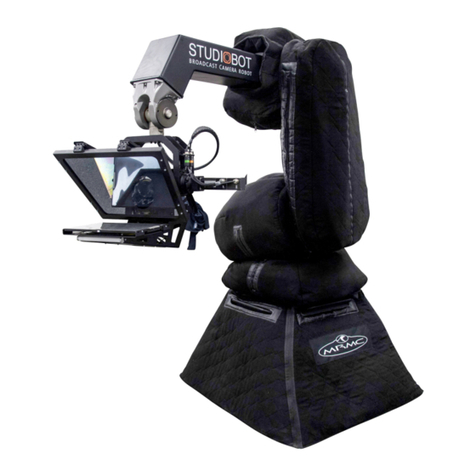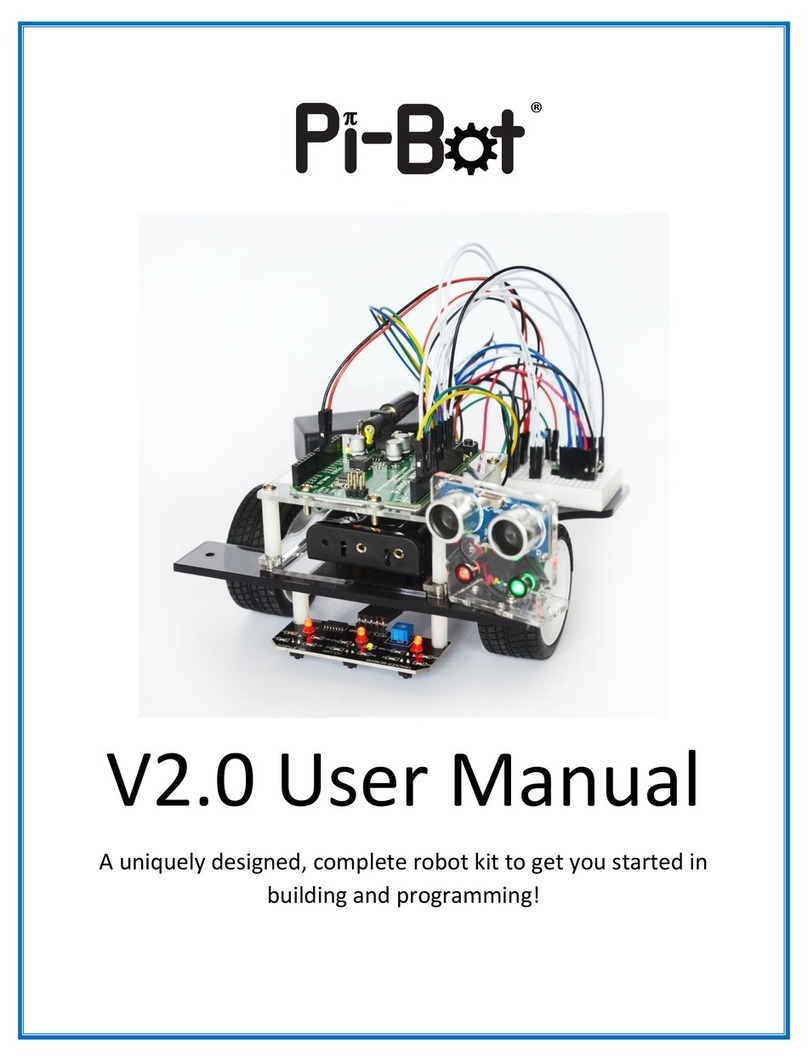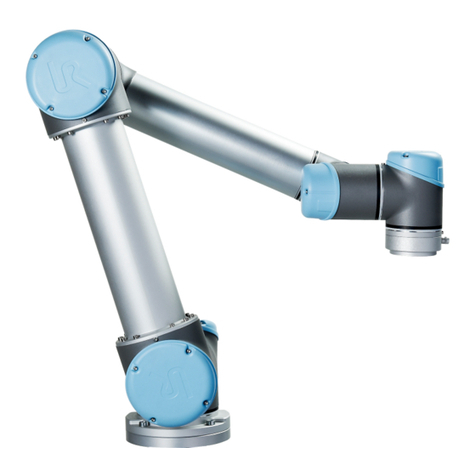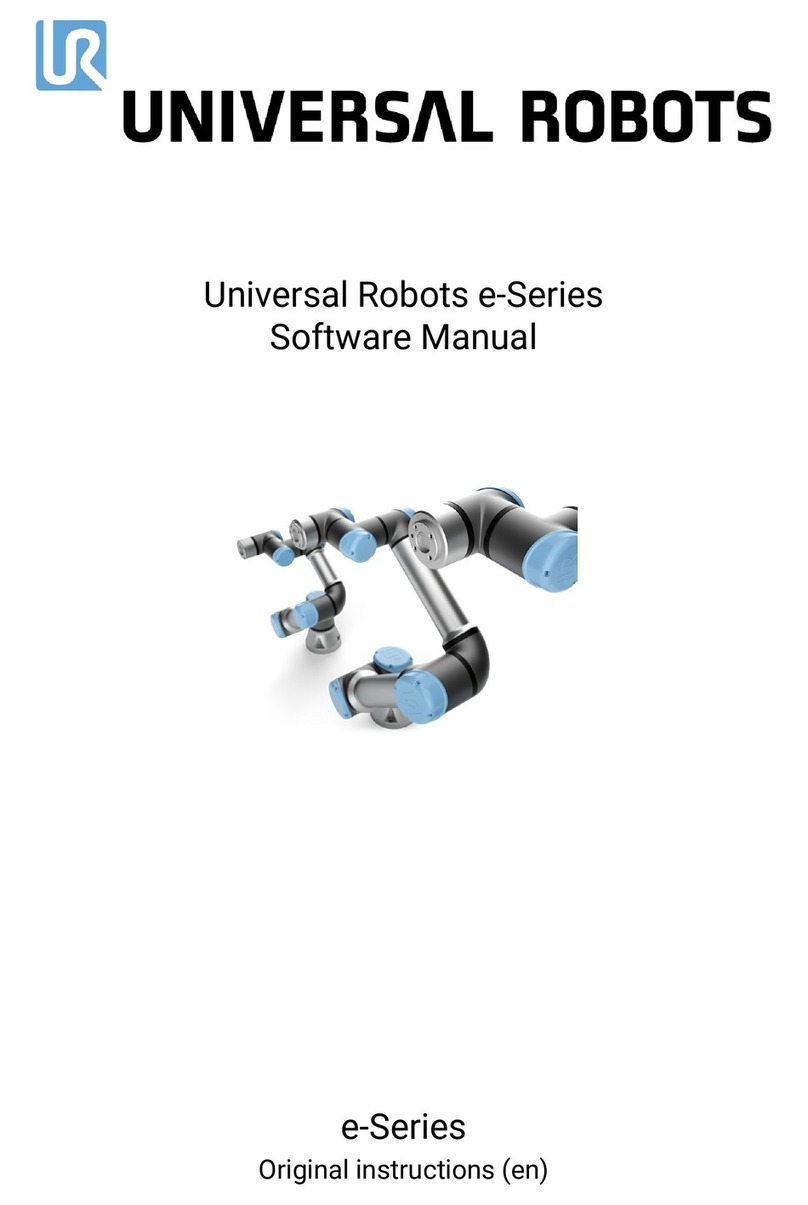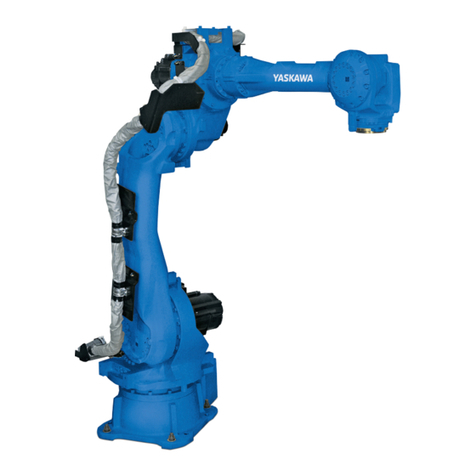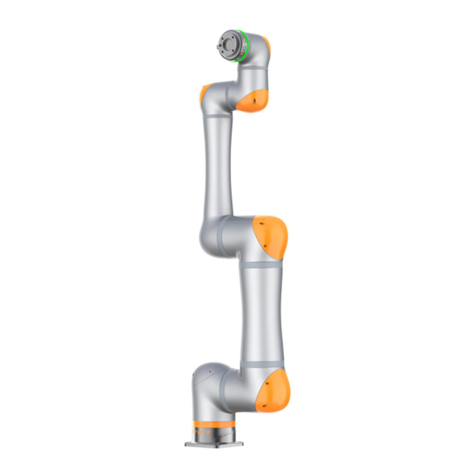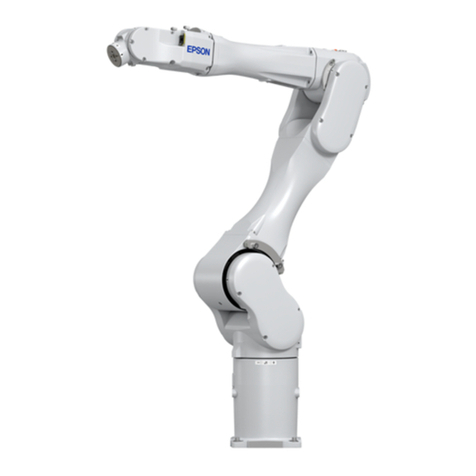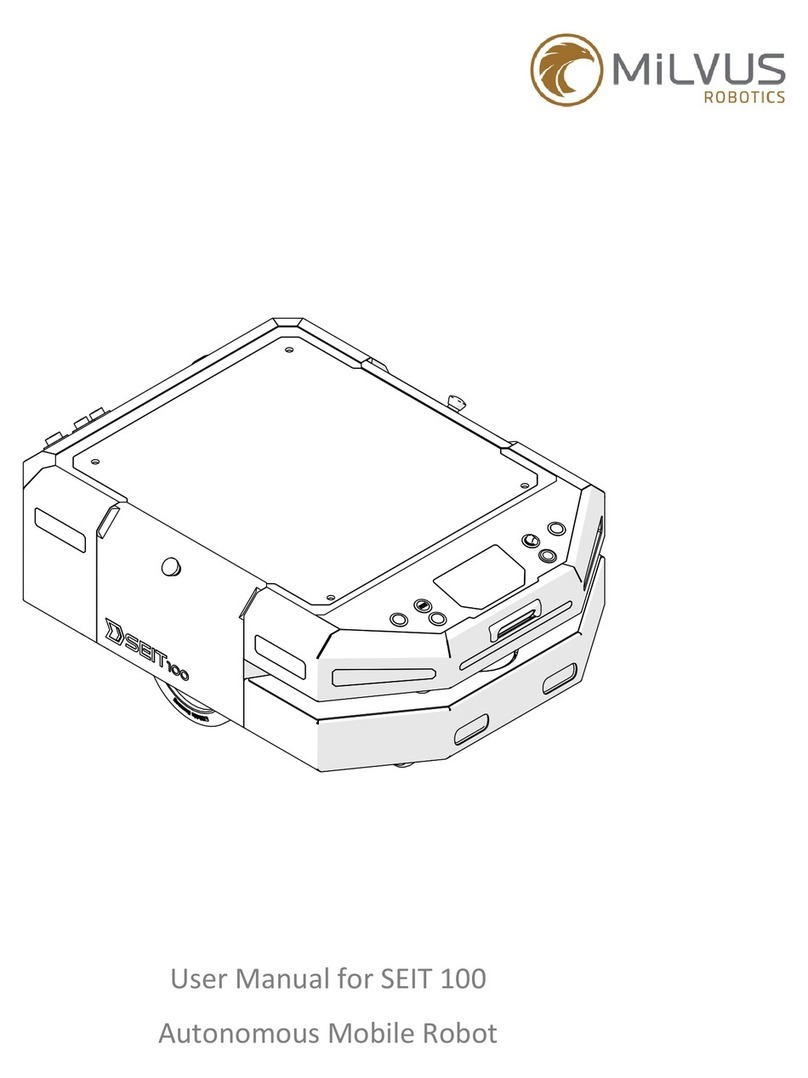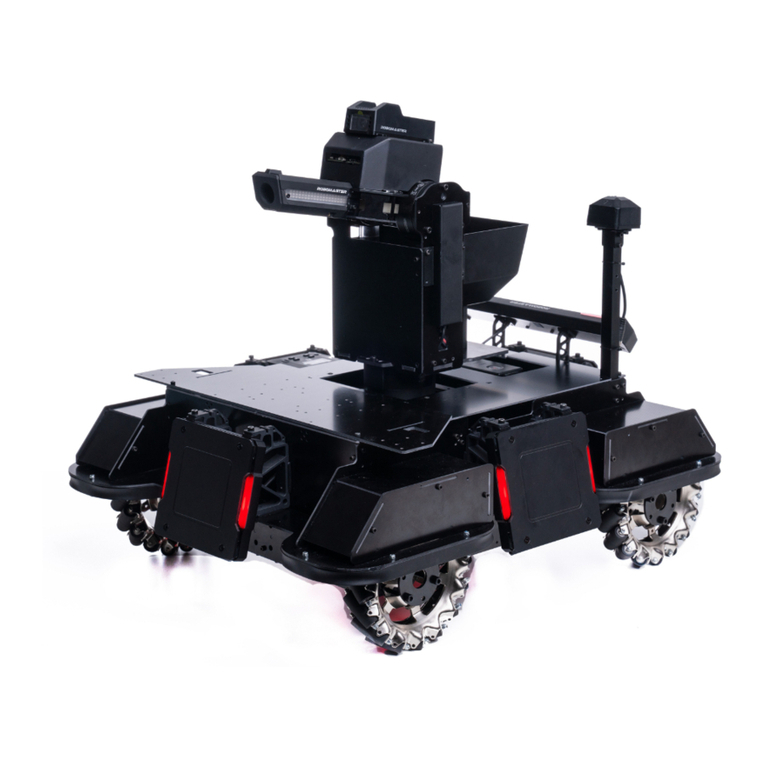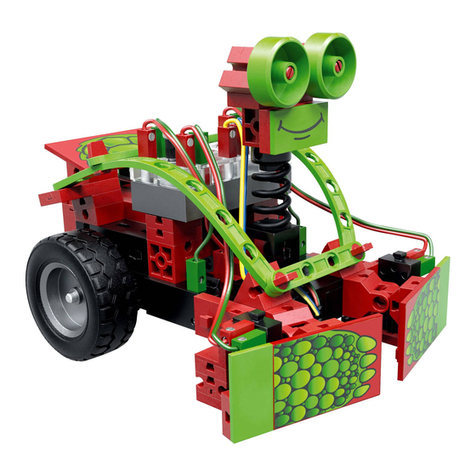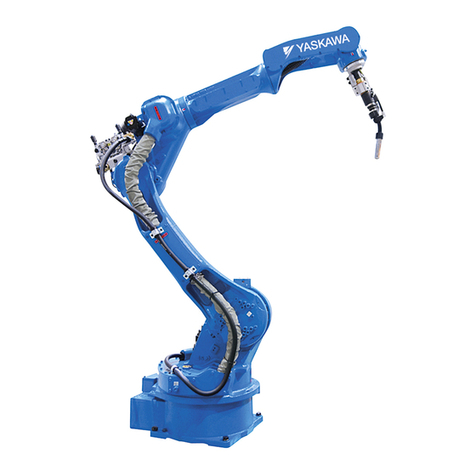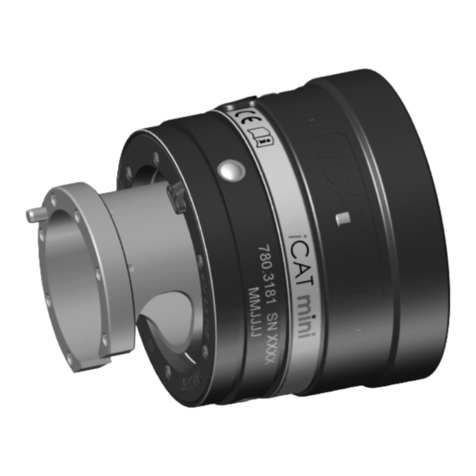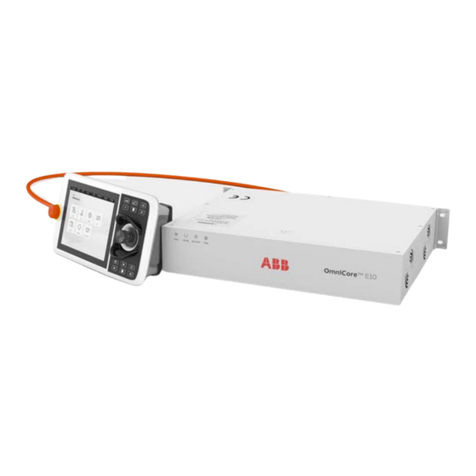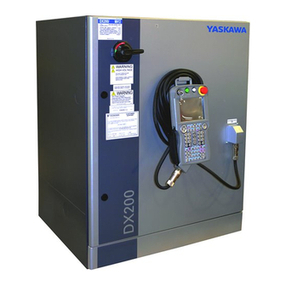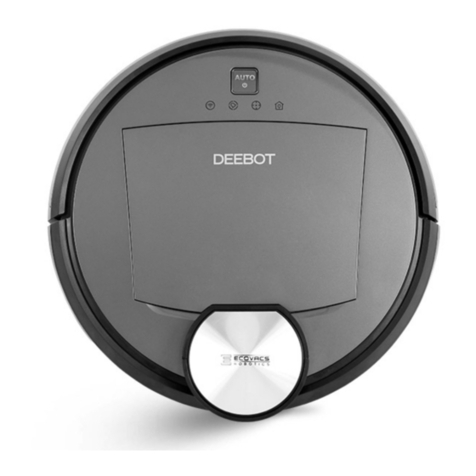
Bolt™ Jr+ Quick Start Guide
iii
Bolt™ Jr+ Quick Start GuideBolt™ Jr+Quick Start Guide
Contents
Chapter 1 Quick Start..................................................................... 1
Overview ................................................................................. 1
Safety procedures for using industrial robots,
including high speed track....................................................2
Assessing a site ..............................................................3
Installation safety..........................................................3
Software setup ...............................................................6
Operational safety.........................................................6
Mounting the Weight Plates (Bolt™ Jr+ on Pedestal).........8
Mounting the Castor Wheels (Bolt™ Jr+ On Pedestal)....11
Mounting the Optional Riser(s).........................................14
Anchoring Bolt™ Jr+ on Pedestal to the floor...................16
Connecting the cables (Bolt™ Jr+ on Pedestal).................18
Connecting the cables (Bolt Jr+ on Track) .......................20
Bolt Jr+ arm connectors for Ulti-box and camera...........23
Starting up the Bolt™ Jr+ on Pedestal system ...................24
Bolt™ Jr+ start-up summary ......................................26
Starting up the Bolt™ Jr+ on Track system........................27
Bolt™ Jr+ start-up summary ......................................28
Shutting down the Bolt™ Jr+ system ..................................30
Bolt™ Jr+ shut-down summary .................................31
Appendix 1 Bolt™ Jr+ panels............................................................ 34
Bolt™ Jr+ Track Base panel connector summary..............34
Ulti-box connector summary.............................................36
Ulti-box connector pin-out information ..........................38
Servo motor connector ..............................................38
Program serial connector ..........................................38
Power connector .........................................................39
Camera Accessory connector....................................39
Data In connector.......................................................40
Appendix 2 Specifications............................................................... 43
Rig Weights ...........................................................................43
Rig Performance...................................................................44
Operating Envelope .............................................................44
Bolt™ Base Cavities Dimension ..........................................45
Dimensions in Transport position.....................................45
Bolt Jr+ on Track.........................................................45
